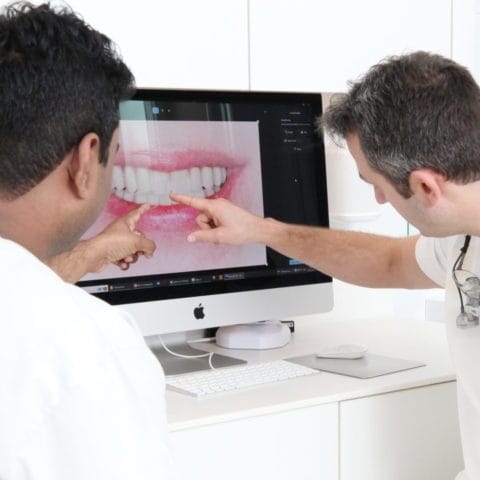Root Canal Retreatment in London
Even when a tooth has received root canal treatment, it might still become reinfected. The patient will usually notice a returning dull pain, and the general feeling will be that “something is not right”. More often than not the tooth in question is not the cause of pain. Moreover, the inflammation may not be visible until the area is looked at in an X-ray. The area affected, around the root tips, will show up on the X-ray as a dark spot.

Treatment Duration
120 minutes

Price
From £1,200

Recovery Time
24 hours

What is root canal retreatment?
If a re-infection occurs following a root canal treatment (and this doesn’t occur in most cases), then root canal retreatment may be necessary. As a recent root canal treatment patient you may well be monitoring the tooth and affected area and so be more aware of any pain or discomfort re-occurring.
Symptoms may include a returning dull pain indicating a general feeling that “something is not right”. Often it is not the affected tooth itself causing the pain and/or discomfort but an inflammation of the area around the root tips caused by a re-infection which is only visible as a dark spot under X-ray.
Root canal retreatment is conducted in a similar manner to your original root canal treatment by cleansing and disinfecting the entire root canal system on this occasion plus the original root canal filling is removed before new filling and sealing of the affected tooth is applied.
How does Root Canal Retreatment work?
Please be advised that success rates for root canal retreatment are around 60%-85%. During your initial treatment we will give you an estimate of the likely success of your individual treatment based on the health of the root canal and general surrounding area.
Your dentist may suggest a different course of action (such as an extraction) if he or she feels that it isn’t the optimal dental procedure.
Who is suitable for root canal retreatment?
After your consultation and once we are in receipt of your dental X-rays, your experienced dental professional at Wimpole Street Dental Clinic will be in the best position to advise whether you are suitable for root canal retreatment on this occasion as presented.
Your dentist or endodontist will inspect the affected tooth (or teeth) and ask you several questions about when the pain became apparent, whether the area has been damaged by injury and when your original root canal treatment was undertaken (if it wasn’t undertaken by a Wimpole St Dental Clinic dentist).
Our state-of-the-art 3D X-ray technology is one of the best premium dentistry tools available and will allow us to assess your suitability for root canal retreatment.
If you’re not suitable for root canal retreatment your dentist may recommend an alternate course of action such as a tooth extraction in order to avoid future issues.
Meet your award-winning Root Canal Retreatment dentist and team…
- We have over 75+ years of combined dentistry experience across our specialist team.
- 10,000+ treatments performed and counting.
- We are leaders in the dental industry – we regularly teach, lecture and publish our research work internationally.
Our Expertise
We are internationally renowned within the dental profession. We pride ourselves on offering evidence-based dentistry with a person-centred approach. We offer a new standard in modern dentistry in our clinical methodology – leveraging the optimal combination of the finest handcraft, magnifying equipment like a microscope, digital computer-aided design (CAD) and computer-aided manufacturing (CAM) technology to deliver excellence in both patient care and dental treatment success
We perform all root canal treatments in accordance with the guidelines of the German and British Society of Endodontics here at Wimpole Street Dental Clinic in London under a microscope.
Specifically for root canal retreatment, not only do we hold a success rate of around 60%-85%, but we also have a clear and confident clinical dental care resolution to safeguard your smile if the outcome is not successful. On these occasions, after consultation, your experienced dental professional at our central London clinic can perform an apicectomy if deemed the next necessary step in your optimum dental care.

HELEN LI
Wimpole Street Dental has the highest most ethical standard of work, personable approach, clear and safe procedures, top notch excellence and reliability in treatment provided with utmost professionalism from crème de la crème world class specialists all under one roof.
What happens during root canal retreatment?
No root canal retreatment will take place until one of our dentists (highly experienced in endodontics) perform an initial consultation with you in order to identify the cause of the issue and assess whether you are suitable for retreatment. Rest assured, just as before during the original root canal treatment, as the procedure begins you will receive a local anaesthetic to numb the infected tooth and surrounding gums ensuring you experience a virtually pain-free appointment with us. The root canal retreatment process at Wimpole Street Dental Clinic in London:-
Our state-of-the-art 2D or 3D X-ray technology diagnoses the nature and potential complexity of the re-infection site at the root canal as we view the issue in precise detail creating the optimal dental care plan for you.
Your original root canal filling is removed by your dentist using a microscope.
Your entire root canal is cleaned and disinfected mechanically and chemically to kill existing bacteria and remove root tissue remnants which could cause further potential inflammation.
Your root canal is closed with a new thick root filling to ensure bacteria is sealed out.
Your root canal back tooth is sealed with crowns and partial crowns to prevent fracture or any further potential re-infection.
Your root canal front tooth is either sealed with fillings, crowns or partial crowns.
Take your first step with Wimpole Street Dental Clinic
Discover the path to a brighter smile with Wimpole Street Dental Clinic! Our team of skilled professionals utilizes advanced technology to provide personalised dental care in a comfortable setting.
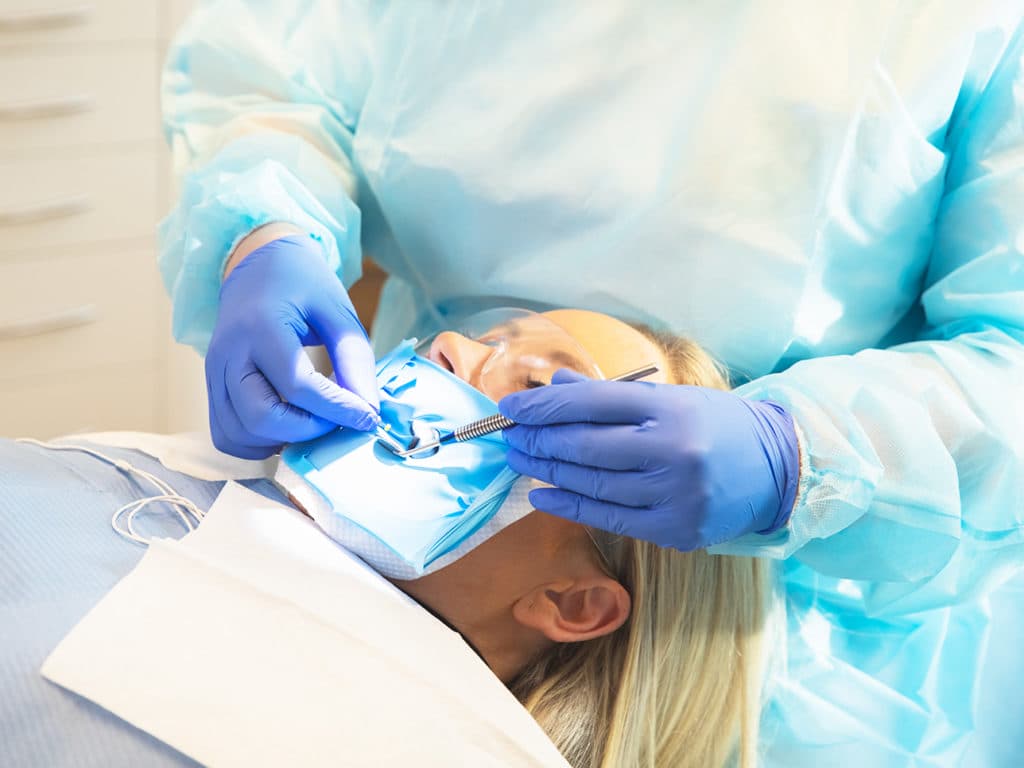
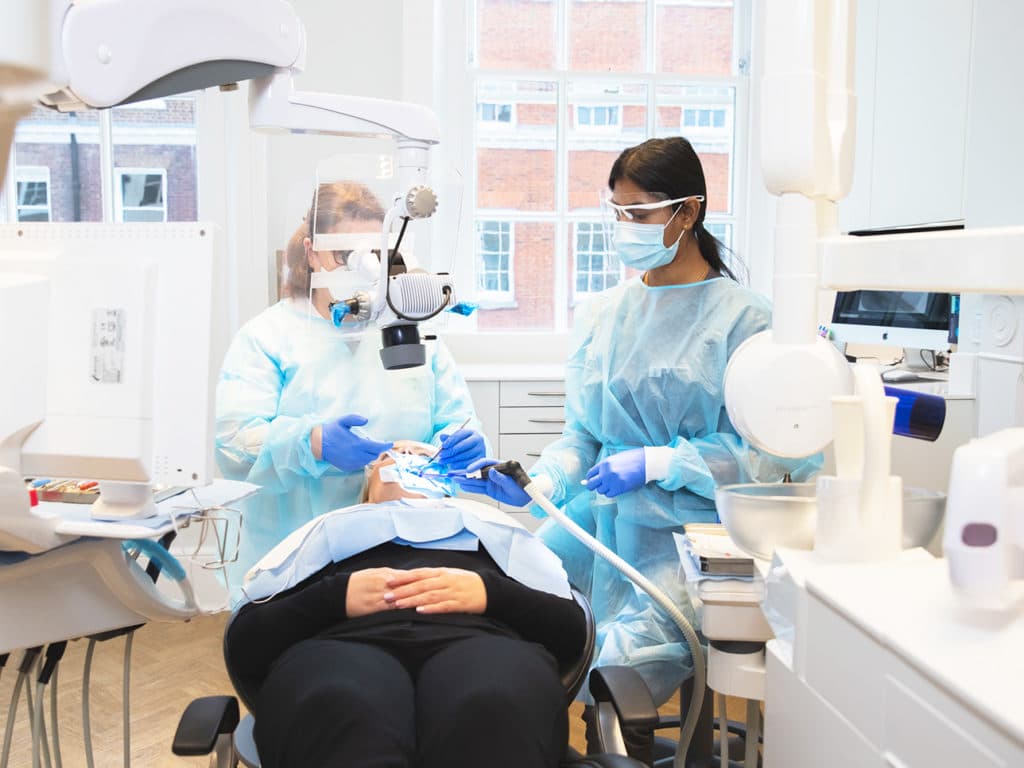

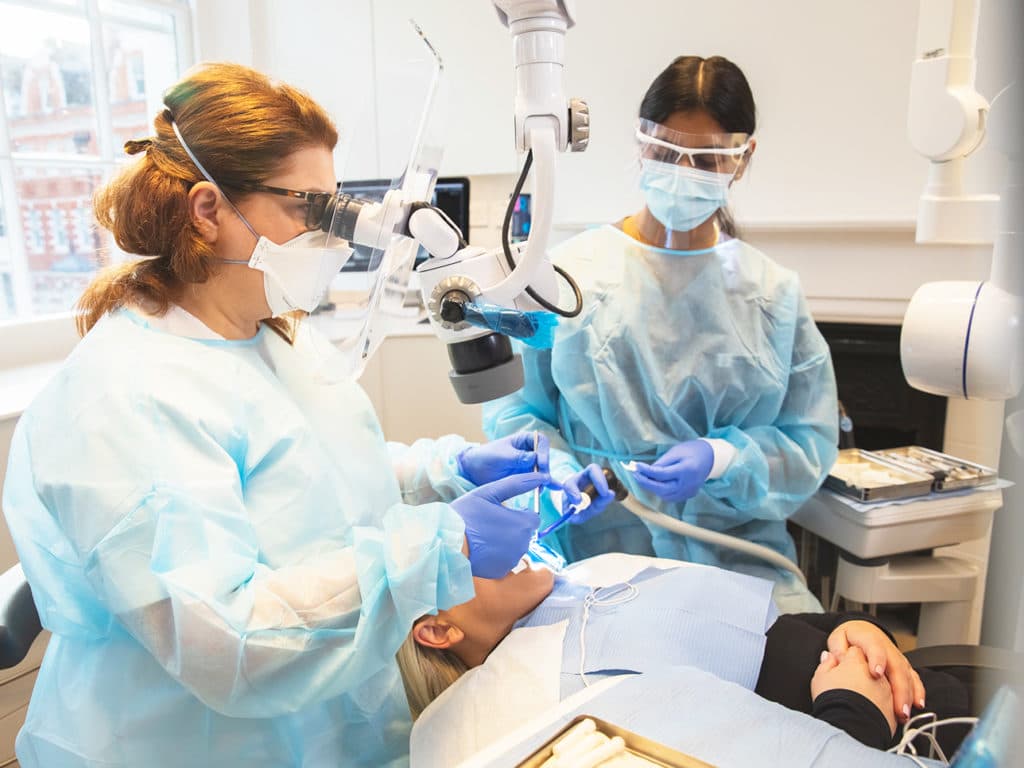
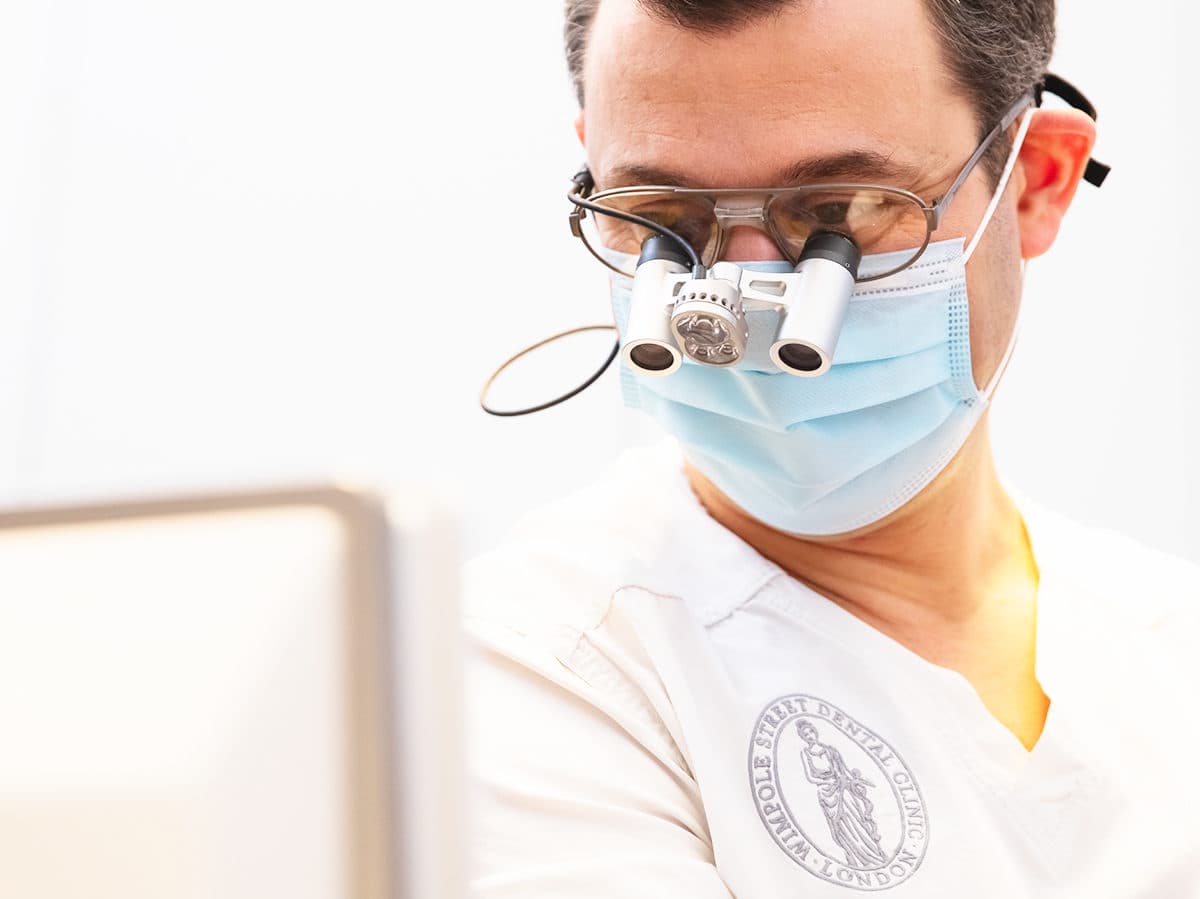
New page design
Written by: Prof Dr Christian Mehl
Medically reviewed by: Dr Raul Costa
Author biography added
Written by: Prof Dr Christian Mehl
Medically reviewed by: Dr Raul Costa
Original content created
Written by: Prof Dr Christian Mehl
Medically reviewed by: Dr Raul Costa
Wimpole St Dental Clinic has strict sourcing guidelines and relies on peer-reviewed studies, academic research institutions, and medical associations. We avoid using tertiary references. You can learn more about how we ensure our content is accurate and current by reading our editorial policy.
- Lumley PJ, Adams N, Tomson P. Root canal retreatment. Dent Update. 2006 Nov;33(9):518-20, 522-4, 526-8, 530. doi: 10.12968/denu.2006.33.9.518. PMID: 17176738.
- Ford TR, Rhodes JS. Root canal retreatment: 2. Practical solutions. Dent Update. 2004 Mar;31(2):97-102. doi: 10.12968/denu.2004.31.2.97. PMID: 15065373.
- Nayak A, Jain PK, Kankar PK, Jain N. Computer-aided design-based guided endodontic: A novel approach for root canal access cavity preparation. Proc Inst Mech Eng H. 2018 Aug;232(8):787-795. doi: 10.1177/0954411918788104. Epub 2018 Jul 17. PMID: 30014778.
- Slowey RR. Root canal anatomy. Road map to successful endodontics. Dent Clin North Am. 1979 Oct;23(4):555-73. PMID: 294389.








